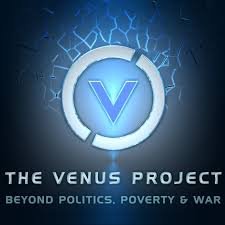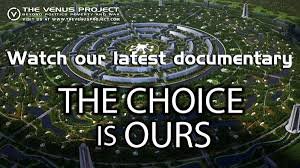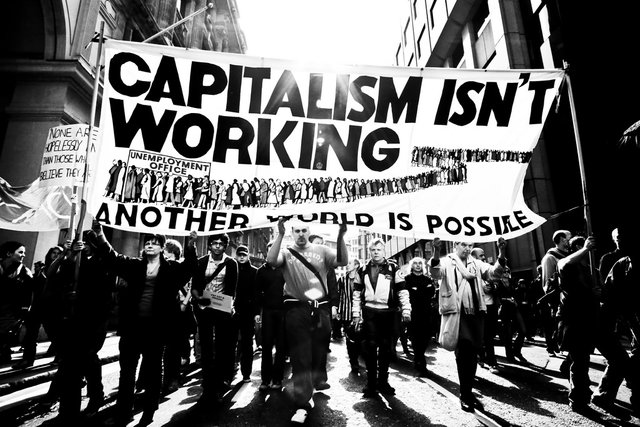
The Venus Project, conceived and directed by Jacques Fresco in Venus, Florida, is a viable alternative to the current state of economic scarcity experienced by nearly every individual on this planet.
It proposes a resource-based economy that would take care of the needs of every individual without wasting those resources.

It is a fascinating concept of a new way to meet the needs of people around the globe.

One topic you might want to research is the socialist calculation debate, or the socialist calculation problem. It's a very interesting thing to read up on (to me, at least), and might help you figure out what the pitfalls could be in an RBE.
In a nutshell: centrally planned economies (which an RBE must necessarily be) are inefficient because there is no mechanism for determining value. In an RBE, value must be determined by central planners (or a central planning AI) in the form of price controls.
Since the central planners do not (can not) have access to all of the information that would be needed to provide efficiently for every individual and unforeseeable circumstance, they fail at pricing goods and services.
There would presumably be a resource allocation system run by an AI gatekeeper in your proposed system, which would presumably allocate resources based on its understanding of need and efficiency.
A would-be paleo biscotti baker can not just wake up one day and decide to make biscotti. She needs coconut flour, she needs butter, she needs maybe some kind of special kitchen equipment. The coconuts need to be grown, the meat needs to be milled into flour, it needs to be packaged and sent off to wherever coconut flour is needed, according to the resource allocation system's forecast. The cows need to be raised and milked and the cream churned into butter. Metal needs to be mined for the special kitchen equipment, and the hardware needs to be available to put it together. Without having perfect knowledge of future needs and demands, the resource allocator can not adequately allocate these resources. If the input of labor and other resources required to produce coconut flour is considered too large in comparison to its net benefit to society, then coconut flour will not be made. If last year everyone was really into arugula, and the resource allocation system uses that information for future greens production, then this year we will have arugula as well, even if we want kale.
The reason markets work more efficiently than centrally planned economies is because the system is not relying on any one imperfect forecaster to make all the allocation decisions. Instead, it relies on prices. If something costs a lot to produce, or is in short supply, it will be priced higher. If the item costs less to produce, or exists in abundance, it gets a lower price tag. But this applies not only to consumer goods, but also to capital goods.
So if I'm making coconut flour to sell to biscotti bakers, the price of coconuts this year (which can be impacted by all kinds of unforeseeable circumstances) will affect how much I can charge (and profit from) my flour...and therefore, how much flour I will produce this year. I know that if prices are high, there will be fewer sales on the consumer end, so I produce less. If prices are low, I produce more. I also pay attention to the demand for coconut flour in the market, as well as a number of other factors that contribute to my decision of how much to produce. Because I'm not the only firm making coconut flour, if I get it all wrong due to poor forecasting, the burden falls only on me. Consumers still can get their coconut flour from other producers who did better forecasting. This is the beauty of decentralized economies. The lives of millions aren't dependent on the decisions of one.
So the biggest problem I foresee with an RBE is a breakdown of resource allocation due to the inability on the part of the gatekeepers to perfectly forecast cost and demand. The AI can be very, very, very smart, but it would still be impossible for it to perfectly forecast all resource requirements. If it made a mistake on coconuts for flour, that would probably just be an inconvenience. But underproducing an important commodity like rubber for tires, or overproducing a perishable staple like tomatoes could have dire consequences.
Downvoting a post can decrease pending rewards and make it less visible. Common reasons:
Submit
I do understand it gets a little complicated. Why do I love the idea of a resource-based economy so much? It just seems more egalitarian, maybe? I love the idea of everyone having what they need, and enough time to develop our unique talents and abilities. Capitalism can't give us more time in the day to earn what we need, and those in the lower income brackets (or disabled individuals) can't always earn what they need by working. RBE just SEEMS like a more just, fair system, while those who can earn more under capitalism would argue otherwise.
BTW-thanks for your well-thought out comments. They really made me consider how I felt about the subject.
Downvoting a post can decrease pending rewards and make it less visible. Common reasons:
Submit
I remember getting really excited about the Venus Project and Peter Joseph's involvement (Zeitgeist Movement, Culture in Decline), but I was disappointed to see it not really go anywhere. I remember really enjoying an interview with Fresco and Larry King way back in the day and essentially, after many years of talk, nothing happened.
To me, the fundamental problem with a RBE and the idea of "post scarcity" in general is that there are no limits on the ambitions of homo sapiens. Some may want to vacation on mars or the moon. The incredible disparity between what various people want means we'll always have scarcity and some will always be willing to work more to provide value to others in order to satisfy their desires. A RBE (IMO), in many ways, treats humans as switches on a circuit board with completely measurable and rational outcomes. That's just not reality.
That said, as a business owning capitalist, I'll readily admit the "economy" as it stands today doesn't really "economize" anything valuable. Too many businesses are involved in planned obsolesce and couldn't give two f***s about the environment or the wastefulness of their actions. The reason I still currently align with "capitalism" is that I have yet to find a better mechanism for measuring the chaotic needs and desires of billions of human beings other than market forces and price discovery. I also recognize the benefit of individuals saving their capital and investing it in order to innovate new technologies to increase wellbeing for humanity. When we provide value to others and measure it through financial incentives, we get pretty amazing results. Steemit, I think, is a good example of this. One of the main things that separates it from any other social media is the financial incentive involved. That involves capital.
Downvoting a post can decrease pending rewards and make it less visible. Common reasons:
Submit
I'm disappointed that TVP hasn't inspired people more in the decades since the idea and concepts were introduced and enlarged-upon. Have you seen the movie? It's phenomenal! Have you read the magazines? What human beings are capable of is incredible, if we will only get out of the way. A resource based economy (RBE) would ensure each individual's needs are met, while giving them the freedom to develop their potential. I don't agree that somehow that is treating humans as "switches on a circuit board". In fact, Fresco proposes developing even more automation to make machines do all of menial labor so our time is freed up to achieve the highest standard of living in human history.
To me, the way of life promoted by TVP is directly in line with Gene Roddenberry's philosophy behind the Star Trek universe. Having been a huge Star Trek fan, I've always wondered : how do we get from where we are right now--to that more ideal society portrayed in the Star Trek era. Capitalism is not going to get us there.
But I agree with you. For now, capitalism is what we've got to work with.
Downvoting a post can decrease pending rewards and make it less visible. Common reasons:
Submit
I guess I look at a UBI in the same way you're viewing RBE. I think a universal basic income (potentially powered by the blockchain?) may be a requirement as we continue to move towards automation.
Without private individual being able to store up their value as capital, how will they do this? If someone has an ambition to not only survive, but to truly live and they want to invent new things at great personal risk, how will they go about doing that under RBE? The word "capitalism" is way overloaded. I see it as individuals controlling their own value as opposed to the State:
Many people take issue with the concept of profit, but it has been with us forever. I'm currently reading the book The Origins of Virtue, and it smashes some myths about how early hunter/gathers lived regarding sustainability. Much of our thinking there is folklore, based on the evidence available. Humans have always traded goods and specialized and profit is the reward for improving people's lives.
My "switches on a circuit board" comment may have been a bit too rough, but I do think if we remove our drive for specialization and profit, we remove something which defines us as a species. Maybe it's time we evolve into a new species, and I'm not necessarily against that. I just think we need to be honest about who and what we are before we can truly figure out the best path to get to who and what we want to be.
Downvoting a post can decrease pending rewards and make it less visible. Common reasons:
Submit
Thank you for all of your well thought out comments! I don't disagree with much of what you've said. I think we're all still figuring things out. What could work better is a whole new area, and I think cryptocurrency has helped people push through to a new way of looking at money.
However, if I might make one last remark on your comments. It's not only the desire for money that drives people. Sometimes we just want to be the best. Sometimes we really do want to help other people for the inner feeling of worthiness that gives us. I think whatever will change people into a better civilization will be motivated by those things.
Meh...call me an idealist.
Downvoting a post can decrease pending rewards and make it less visible. Common reasons:
Submit
Yes, I do think the understanding of intrinsic vs. extrinsic motivation is important, but I see money as a ledger. We'll always want that ledger, even to keep track of the results of our own internal motivations.
Good conversation, indeed. :)
Downvoting a post can decrease pending rewards and make it less visible. Common reasons:
Submit
Downvoting a post can decrease pending rewards and make it less visible. Common reasons:
Submit
Thank you for supporting the point! Love the quote.
Downvoting a post can decrease pending rewards and make it less visible. Common reasons:
Submit
Keep working, stop paying, and everything is free.
Downvoting a post can decrease pending rewards and make it less visible. Common reasons:
Submit
Thanks for introducing us to this concept, @judyd100! We're loving Steemit for this very reason; the platform for the exchange of new ideas is timely and inspiring. We've created our own economy in our sustainable community, and it's exciting to be able to share improved options with members of the Steemit community. Together, we can shape a better world for ALL!! https://steemit.com/community/@gardenofeden/a-delicious-taste-of-the-abundantly-free-life-in-our-sustainable-community
Downvoting a post can decrease pending rewards and make it less visible. Common reasons:
Submit
Yes! I'd already read one of your articles previously, and really enjoyed it! Keep up the good work.
Downvoting a post can decrease pending rewards and make it less visible. Common reasons:
Submit
The Free Market works every time it's been tried.
The less free it is, the less well it works.
Don't blame the free market for not working well when it's regulated.
Downvoting a post can decrease pending rewards and make it less visible. Common reasons:
Submit